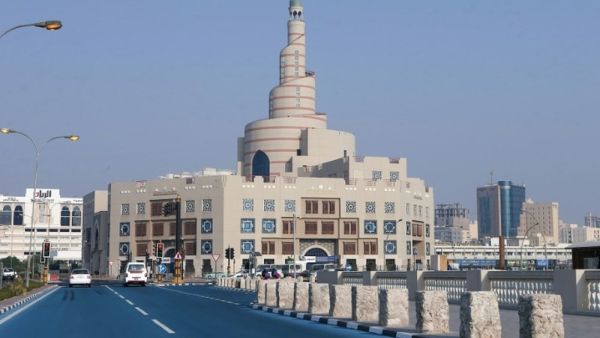ALBAWABA - All eyes are on Qatar and its capital, Doha, for serving as a launch pad for the Iranian-US delegates to revive the 2015 UN-sponsored JCPOA nuclear deal which American muzzled out of in 2018 under the then US president Donald Trump.
Its early days but at least they agreed to talk with Iran's nuclear negotiator Ali Bagheri Kani and US Iran Envoy Robert Malley sitting at the table in the Qatari Foreign Ministry. But its early days yet, they started their rounds, Tuesday afternoon, and will continue till a deal is hammered out.
Told @IranIntl
— CameliaEntekhabifard (@CameliaFard) June 28, 2022
Iran-US talks in #Qatar are beyond the nuclear talks; The missile program,
Iran's regional interventions & associated militias.
The US is lifting sanctions on the economic branch of the IRGC & its military branch will remain under sanctions. 1/2 pic.twitter.com/cSsrGy5u3m
As well, they are not talking directly just yet but through the Qatari Foreign Minister Sheikh Mohammed bin Abdulrahman Al-Thani and the top EU delegate to the Vienna nuclear talks Enrique Mora. Two days previously, he had accompanied EU Foreign Policy Chief Josep Borrell to Tehran to persuade the Iranians to get back to the negotiating table and clench a deal.
Qatar had been chosen because of its "good" relations with the United States and Iran, and therefore Doha, was seen as a prudent place to kickstart the talks that had been in limbo since March mainly because of Russia's invasion of the Ukraine that started in February.
What you need to know about the Iran-US nuclear talks in Qatar https://t.co/qLxGcB6rVl via @AJEnglish
— No to Fascism & Racism - VoteBlue2022 (@JTraversDevine) June 28, 2022
Since then there was much behind the scenes developments about re-starting the talks which were regularly held in Austria for the past 11 months and were almost ready for the signing. Now, the pressure is on again as the Biden administration and the Iranians want to conclude a final deal despite continuing Israeli pressure to frustrate it and of the Russian bullying about the sanctions imposed upon it by the West.
But everyone had wanted revival for different reasons political, technical and nuclear reasons.
Qatari Emir Sheikh Tamim bin Hamad Al Thani made a special trip to Tehran last May and followed that up by going to Europe where it was decided to move the Vienna talks to Doha for a final push between Washington and Tehran.
This is the point where every is at one. Media talk, at least from the Iranian side suggest in Doha the negotiations will no longer be about nuclear talk per se, but about economic benefit and the removal of sanctions that include Iran's Islamic Revolutionary Guards Corp from the US "Terror List".
The Iranian Foreign Ministry spokesman Saeed Khatibzadeh said on Monday: “What we are going to do in the next few days in the next negotiations is not about the nuclear aspect of the talks, because the nuclear issues have been closed once,” pointing out “what is going to be negotiated...is only about a few remaining issues in the field of lifting sanctions, so nothing will be added to the agreements reached in Vienna and nothing will be omitted,” he stated.
But there could be a final minute snag. What Washington maybe willing to do is remove bits and pieces of the IRGC from the list. This is still up for negotiations but the word is out that Washington might now want to sign the deal to stop Iran from its uranium enrichment now standing at 60 percent whereas the 2015 cap deal was limited to under four percent.
Iran is well on the way to producing a nuclear bomb and Washington wants to make sure this doesn't happen and that goes for the jittery Europeans.
If a country in the Persian Gulf is going to host the Iran-US indirect talks, it has to be either Oman or Qatar.
— Sara Massoumi (@SaraMassoumi) June 25, 2022
Oman has played this role in the past, yet I assume Doha will be more convenient when it comes to logistics and flights. ???????? https://t.co/uDjamz8jKA
In a statement provided by the Ministry of Foreign Affairs in Doha it affirmed Qatar's full readiness to provide an atmosphere that helps all parties make the dialogue a success according to The Peninsula.
The Ministry expressed Qatar's hope that the round of indirect talks will be culminated in positive results that contribute to revival of the nuclear deal signed in 2015, thereby supporting and strengthening security, stability and peace in the region and opening new prospects for wider regional cooperation and dialogue with the Islamic Republic of Iran, the Doha English daily added.







